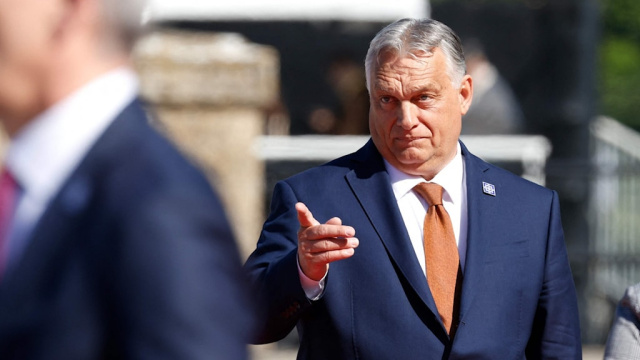
Hungary will block European Union refunds to member states that provided ammunition to Ukraine until Kyiv resumes the transit of oil from Russia’s Lukoil through a pipeline across Ukrainian territory, Hungary’s foreign minister announced on Tuesday. Slovakia and Hungary recently reported that they had stopped receiving oil from Lukoil via the Druzhba pipeline after Ukraine imposed a ban last month on the transit of Lukoil resources.
Hungarian Foreign Minister Peter Szijjártó stated, “Until this issue is resolved by Ukraine, everyone should forget about the payment of 6.5 billion euros from the European Peace Mechanism compensation for arms transfers,” according to ATV TV. This aligns with the remarks made by Josep Borrell during a press conference on Monday evening following the EU foreign ministers’ meeting in Brussels, where he mentioned that no agreement had been reached to unblock funds for financing arms supplies to Ukraine.
“Most member states insisted on lifting the blockade, which has been ongoing for months, even a year. They emphasized the need to move forward on the new support fund for Ukraine, which has been blocked by a member state for over a year. This state deems the situation unacceptable and intolerable, yet, unfortunately, the status quo remains,” Borrell noted. While the country was not explicitly named, it was evident that Viktor Orban‘s Hungary was the culprit, having already secured an exemption from EU funds intended for military aid to Ukraine.
Finnish Foreign Minister Elina Valtonen expressed to Helsingin Sanomat that Hungary’s differing stance on EU policies might suggest that the European Union is not the “right reference group” for Budapest. She criticized Hungary’s foreign policy, especially after Hungarian Prime Minister Viktor Orban‘s “peace mission” visits to Russia and China, which gave the impression he represented the EU. Valtonen stated that Hungary had no right to represent the European Council because its views diverged from the union’s official stance.
Following a meeting of foreign ministers, Valtonen remarked, “Of course, it’s up to individual countries to do that. But at some point, it might be worth asking whether the European Union is the right reference group if their ideas differ so fundamentally from our shared values.”
On Monday, Hungary and Slovakia requested the European Commission to mediate a consultation procedure with Ukraine. This process would allow them to escalate the matter to court unless the EU executive takes action within three days. The European Peace Facility (EPF), established in 2021, serves as a mechanism for member countries to recover funds spent on sending ammunition to other nations.
After Russia’s invasion of Ukraine in 2022, member states supplying weapons to Ukraine could seek compensation from this fund. However, Hungary has obstructed the payment of the next tranche of EPF money for over a year, citing various concerns.






